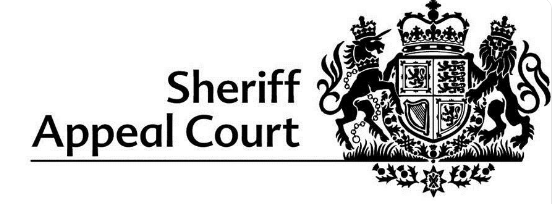Homeowner wins appeal over RBS’s ‘invalid service’ of calling-up notice on property

A homeowner who was unable to maintain his monthly mortgage payments has successfully challenged his lender’s bid to repossess the property after appealing against a sheriff’s decision that the bank had validly served a calling-up notice.
The Sheriff Appeal Court ruled that a “strict interpretation” of the relevant legislation was required and that the bank’s failure to serve the notice in accordance with the statutory provisions rendered its summary application to the court “incompetent”.
Appeal Sheriff Grant McCulloch heard that the appellant Ross Jamieson took out a mortgage with the Royal Bank of Scotland in 2004 and granted a standard security over his property.
But he was unable to maintain monthly payments and the account fell into arrears, following which the respondents raised proceedings for the calling-up of their security on number of occasions, most recently in 2017.
After proof, by interlocutor dated 11 March 2019 the sheriff granted the decrees sought by the respondents, but the defender appealed to the Sheriff Appeal Court on the basis that the sheriff “erred in law”.
The court was told that the sheriff had found as fact that a calling-up notice was served on or about 26 July 2017, and further found in fact and law that the respondents had validly served the calling-up notice in respect of their security.
However, on appeal the appellant argued that service on the extractor, as happened, was “invalid” as it did not follow on from any of the three preconditions referred to in section 19 of the Conveyancing and Feudal Reform (Scotland) Act 1970, namely address unknown, not known if alive, or packet returned undelivered.
The appellant’s position was that if service on the extractor was invalid, then the whole summary application itself was “incompetent”, as the 1970 Act required there to be a valid service of the calling-up notice before decree could be granted.
His address was known, he was clearly alive, and there was “no evidence” to show that the packet had been returned.
But the respondent’s explained that what had happened was that a calling-up notice had been sent to the appellant by recorded delivery mail, on 11 July 2017, and that was the receipt attached in error to the execution on, and acknowledgement from, the extractor.
The postal service had been unable to serve on the appellant, there being no answer, and accordingly, service was made on the extractor.
In terms of the section, once service is made on the extractor, the appellant is deemed to have been “lawfully served”.
Agents were aware that service had failed by checking the “track and trace” online facility provided by Royal Mail, and in that knowledge, it was submitted that they were entitled to serve on the extractor, which was “common, modern practice”.
In addition, sheriff officers had been instructed on 12 July 2017, and had attempted personal service on 13 July 2017.
While this was unsuccessful, they had deposited the calling-up notice – although it was accepted that this did not conform to section 19(6).
Allowing the appeal, the appeal sheriff observed that in the case Santander UK Plc v Gallagher 2011 SLT (Sh Ct) 203, which concerned a “letter box service”, the court held that the terms of section 19(6) of the 1970 Act must be followed when serving a calling-up notice, and it was not possible for service to be effected by any of the modes of service provided for in the rules of court.
Delivering the opinion of the court, Sheriff McCulloch said: “In the present case, service was on the extractor. For such service to be lawful, there had to be present one of three preceding requirements, all as specified in section 19(6). Reading short, they are (1) address unknown, (2) unsure if alive, or (3) packet returned by Royal Mail.
“None of the three apply here. What the respondents’ agents did was to attempt recorded delivery service, check to see if it had been signed for, and when it had not been signed for, they proceeded to serve on the extractor.
“This, in my opinion, they were not entitled to do. It was going too far to deduce, as they must have done, that the address was unknown, merely because a recorded delivery letter had not been signed for, or there was ‘no answer’.
“If the comment had been ‘gone away’, as is sometimes the case, then service on the Extractor would be permitted. They did not wait to see if the packet was returned, which again would have allowed for service on the extractor.
“What, then, is the effect on this action of the failure to serve in accordance with section 19? A calling-up notice is the foundation of the respondents’ application to the court. Accordingly it is important that it be served in accordance with the provisions of section 19.
“It is not enough to say that section 19(6) provides that service on the extractor is equivalent to service on the person on whom it is desired to be served and thus the calling up notice procedure becomes valid. It does not. One can only proceed to serve on the extractor in defined circumstances, not present here.”
He concluded: “A strict interpretation of the statute is required. As the calling-up notice was not served strictly in accordance with the provisions of section 19(6), it renders the subsequent procedure inept, and the summary application incompetent.
“It follows that the sheriff erred in law in holding that the respondents had validly served a calling-up notice in respect of the standard security granted in their favour by the appellant. The interlocutor of 11 March 2019 is recalled and the summary application dismissed.”






